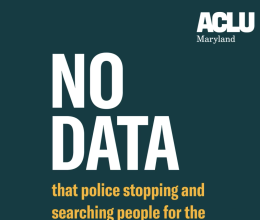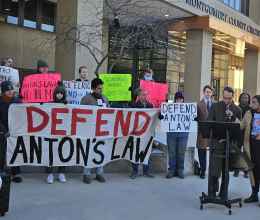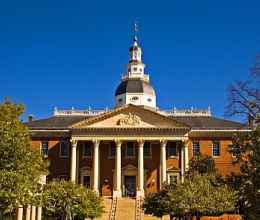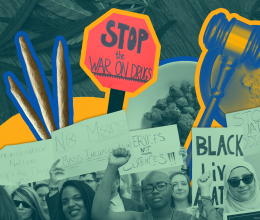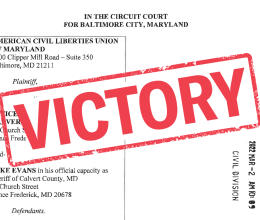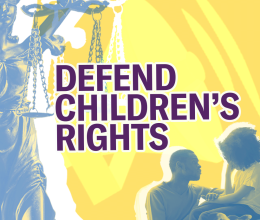
As states across the nation consider how to respond to cases of Ebola being diagnosed in the United States, the ACLU is encouraged that Maryland thus far has taken a sensible and fact-based approach. Government responses to Ebola - or any potential health threat - must be guided by sound medical science, not by fear and political posturing. But it is worth remembering that Maryland's measured response, in sharp contrast to actions taken by the governors in New York and New Jersey, is not just good policy. It is legally required thanks to changes made to state emergency powers in 2002, which the ACLU of Maryland was instrumental in shaping.
In the aftermath of the September 11, 2001 terrorist attacks, state lawmakers considered numerous legislative proposals that would have limited civil liberties in the name of safety. Guided by the belief that true security can never come from limiting freedom, the ACLU had considerable success negotiating with then-governor Parris Glendening's staff on a bill that expanded emergency powers during episodes of bioterrorism and other health emergencies.
As a result of those negotiations, today, Maryland's quarantine laws are among the best in the country. While some limits on rights can be justified by the need to fight communicable disease, it is important to take the path least restrictive of civil liberties and to stick to what public health experts say is truly necessary. Quarantine is not justified for those without symptoms, and over-reaction is counterproductive from a public health standpoint. As many public health experts have noted, fear-based responses that unnecessarily restrict people's freedom will serve only to discourage much-needed volunteer public health workers from going to West Africa to help address the current outbreak.
Under our current rules, Maryland's Secretary of Health and Mental Hygiene has the power to order a person into quarantine "[w]hen the Secretary determines that it is medically necessary and reasonable to prevent or reduce the spread of the disease or outbreak believed to have been caused by the exposure to a deadly agent." However, victims must be treated like patients, not enemies or criminals. And returning public health workers should be acknowledged as heroes who are helping to safeguard our security.
Should a person not consent to being quarantined, state regulations still provide important procedural protections. They specify that the person the state wishes to quarantine has to be provided with written notice in a "directive," and the directive has to, among other things, specify the deadly agent, "the basis on which the quarantine is justified," and inform the person of a right to a court hearing to contest the directive.
If an individual requests a hearing, it has to take place within 3 days, with very limited emergency exceptions. The court is required to end the quarantine unless it finds "that the isolation or quarantine directive is necessary and reasonable to prevent or reduce the spread of the disease or outbreak believed to have been caused by the exposure to a deadly agent." The court is also required to "consider the means of transmission, the degree of contagion, and, to the extent possible, the degree of public exposure to the disease." And the court is required to appoint counsel to affected individuals or groups who do not have access to lawyers.
Quarantine orders are effective only for 30 days, and then must be renewed under the procedures above, with the same right to challenge the continued confinement. In addition, it is unlawful for any employer to discharge an employee because of a quarantine order.
In short, when quarantine cases go to court, the ruling must be based on science, not on fear, and the person to be quarantined continues to enjoy significant procedural protections.
The ACLU was also successful in advocating for some privacy protections in the law, which says that any information the Health Secretary receives as part of the disease surveillance system should be anonymized wherever possible. And any non-anonymized information must be kept confidential and cannot be redisclosed except to a health care provider or public official, and then released only when "necessary to treat, prevent, or reduce the spread of the disease or outbreak believed to have been caused by the exposure to a deadly agent."
All these rules are in place to ensure that responses to public health emergencies are carefully tailored to promote public health without causing unnecessary deprivations of liberty or intrusions into individuals' privacy. We are pleased to see our state adopting a measured approach and are proud of the role we played in ensuring that our laws provide appropriate protections to all Marylanders.
